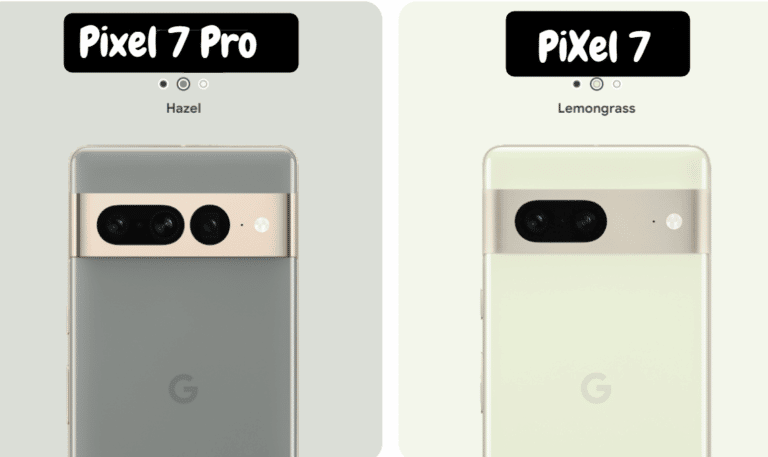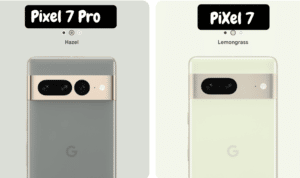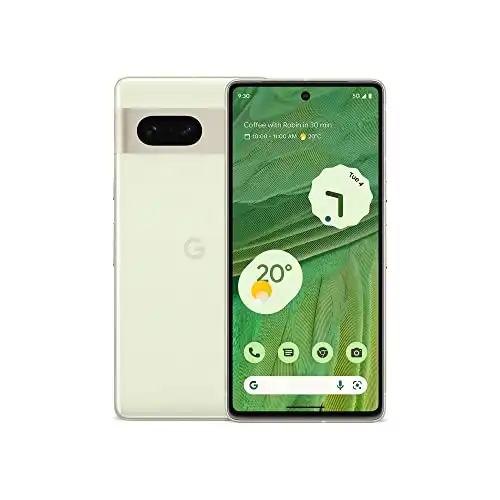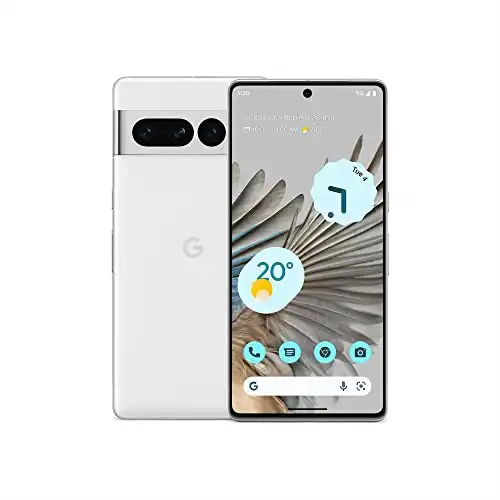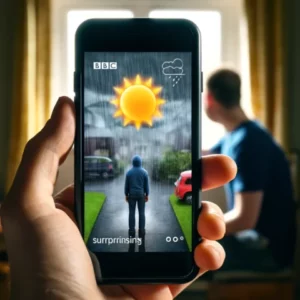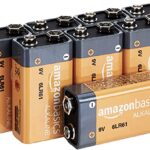On October 6, Google released the Google Pixel 7 Pro and Google Pixel 7. These two are the latest flagship smartphones for the company. The Pixel 7 Pro is more substantial and comes with a curved 6.7-inch display, one more camera on the rear, and some additional advantages. While the Google Pixel 7 includes a visor-style camera array with a bar across the rear and a well-integrated 6.3-inch display. Additionally, both features an updated Tensor G2 chip that is dust- and water-resistant. However, the following are all the comparative points, pros, cons, and everything you should consider before buying.
What will you see here?
Overall Summary
|
4.4
|
4.2
|
|
£599.00
|
£839.00
|
|
The Google Pixel 7 5G smartphone’s 128GB variant, which comes in three colors (Lemongrass, Obsidian, and Snow) and has a wide-angle lens and a 24-hour battery, went on sale on October 13 for $599. The Google Pixel 7 features an internal storage capacity of 8 GB and a 6.3-inch screen. |
The Google Pixel 7 Pro has a large 6.7-inch OLED display powered by Google Tensor G2, which is faster, more efficient, and more secure. The Google Pixel 7 Pro is available for £839 in 3 colors: Hazel, Obsidian, and Snow. |
|
|
|
|
The Google Pixel 7 5G smartphone’s 128GB variant, which comes in three colors (Lemongrass, Obsidian, and Snow) and has a wide-angle lens and a 24-hour battery, went on sale on October 13 for $599. The Google Pixel 7 features an internal storage capacity of 8 GB and a 6.3-inch screen.
- Large, colorful display
- Exceptional performance
- Distinctive color options
- Innovative features
- Poor battery life
- Lacks zoom camera
The Google Pixel 7 Pro has a large 6.7-inch OLED display powered by Google Tensor G2, which is faster, more efficient, and more secure. The Google Pixel 7 Pro is available for £839 in 3 colors: Hazel, Obsidian, and Snow.
- A professional camera setup
- Intuitive
- Simple to use
- Clean Pixel UI applications
- Telephoto photos lack bright colors.
- Charges slowly
Comparison chart
Google Pixel 7 Google Pixel 7 Pro
| Price | Starting at $599 | Starting at £839. |
| Display | 6.3-inch, 1,080 x 2,400 OLED with 90Hz refresh rate | 6.7-inch, 1,440 x 3,120 LTPO OLED with 120Hz refresh rate |
| Weight | 197 g | 212 g |
| RAM/ Storage | 8GB RAM with 128GB/256GB storage | 12GB RAM with 128GB/256GB/512GB storage |
| Battery | 4,355 mAh with 30W charging | 5,000 mAh with 30W charging |
| Camera | 50MP f/1.85 wide, 12MP f/1.25 ultrawide, 10.8MP f/2.2 front | 50MP f/1.85 wide, 12MP f/1.25 ultrawide, 48MP f/3.5 telephoto, 10.8MP f/2.2 front |
| Refresh rate | 90Hz | 120Hz |
| Colors | Obsidian, Snow, Lemongrass | Obsidian, Snow, Hazel |
| Aspect ratio | 19.5:9 | 20:9 |
| Brightness Mode | High Brightness Mode | 1000 nits HDR upto 1500 peak brightness |
| Focus | No Macro Focus | Macro Focus |
| Wireless Charging | 20 W | 23 W |
| 4K Cinematic Pan Video Stabilisation, 4K Locked Video Stabilization, 1080p Active Video Stabilisation, | — |
Common features:
- SIM Type: Dual Sim, GSM+GSM
- Sim size: Nano +eSim
- Release Date : October 06,2022
- Multitouch features
- Always -On display, Now Playing
- Punch hole notch
- No card slot
- Connectivity: GPRS, Edge, 3G, 4G, 4G and 5G
- Chipset : Google Tensor G2
- OS: Android v13
- CPU: 2.85 GHz, Octa Core Processor
- Dual Stand By Volte
- Wi-Fi hotspot
- USB- USB tethering, on-the-go
- Dual-band GPS ,GLONASS,GALILEO, QZSS,BDS
- Fingerprint Sensor in display
- Fast Charging : 30 W
- Built in VPN by Google One
- Other features : Magic Eraser, Photo Unblur, Motion Mode, Real Tone, Face Unblur, Panorama, Manual White Balancing, Locked Folder, Night Sight, Top Shot, Portrait Mode, Portrait Light Super Res Zoom, Motion Autofocus, Frequent Faces, Dual Exposure Controls, Live HDR+, Video Feature: 10 Bit HDR Video, Cinematic Blur, Cinematic Pan, Slow Motion Video Support Upto 240 FPS, 4K Timelapse with Stabilization, Astrophotography Timelapse, Optical Image Stabilization, Fused Video Stabilization
Layout and Display
Pixel 7

The Google Pixel 7’s OLED screen, which is 6.3 inches instead of 6.4 inches like the Pixel 6’s, boasts a superior refresh rate of 90Hz. The Pixel 7’s display is highly sharp despite not being as flashy as others; it manages a 10802400 resolution. Its maximum brightness, which can reach 1400 nits for a 5% window and 1000 nits for the display surface, is more than sufficient.
Composed of :
The Pixel 7 is composed of aluminum rather than glass; even the device’s frame is lined with aluminum. The Pixel phone still features the visor-style camera array with the bar across the back.
Display-
The Pixel 7 offers a straightforward and well-integrated always-on display. The display switches automatically between 90Hz and 60Hz, improving visual quality. According to Google, the Pixel 7 panel is 25% crisper than its predecessors. While looking at the hues, users will notice that the two styles have vanished. The Pixel 7 seems more modern and expensive since it has a less visible front bezel than the Pixel 6. Anyone who wants a large screen that isn’t unreasonably large might consider the Pixel 7.
Pixel 7 Pro

The Google Pixel 7 Pro chooses to refine a distinctive appearance while taking influences from its predecessor. The 6.7-inch OLED screen on the Pixel 7 Pro has a QHD+ resolution. The Pixel 7 Pro’s panel improves on the display from the previous model. Deep blacks and sharp contrast make colors stand out beautifully. The increased peak brightness of the display is a significant improvement. When playing back HDR footage and in bright sunshine, the 6.7-inch panel appears more promising.
Composed of :
Its all-glass construction rounded display sides, and trademark camera visor is all on the device’s rear. It eliminates the two-tone styling, has more subdued curving sides, and circles around the camera lenses on the visor to make them stand out more. On the Pixel 7 Pro, the metallic bar has a glossy texture. Additionally, the volume and power buttons have been shifted somewhat lower.
The Pixel 7 Pro offers a straightforward and well-integrated always-on display
Camera Specifications

The Google Pixel 7’s primary camera’s 50MP sensor features an f/1.85 lens and an 82-degree field of view. The front camera has undergone the most significant change, with a 10.8MP sensor and a wider 92.8-degree field of view. The 12-megapixel ultra-wide camera sports an f/2.2 aperture, a 114-degree field of view, and a 12-megapixel sensor. Both optical and electronic image stabilization is used to produce crisper images. S also includes a 10.8-megapixel selfie camera.

The 50MP Samsung GN1 sensor, the main component of the Google Pixel 7 Pro, has a size of 1.31 inches and a maximum aperture of f/1.9, resulting in a smooth, realistic bokeh. The primary shooter pixel bins are more diminutive, typical of most high-megapixel sensors. The ultrawide camera on the Pixel 7 Pro makes a few modest adjustments, expanding its field of vision from 114 degrees to 126 degrees while maintaining its 12MP resolution.
30x super-resolution zoom and a 5x optical zoom
The Pixel 7 Pro is the only device with 30x super res zoom and 5x optical zoom features because of its hardware. A new 48MP telephoto lens on the Pixel 7 Pro offers optical zooming of up to 5x. According to Google, employing this feature produces stunning 12MP photographs at a 10x magnification comparable to those taken with a lens with a 10x optical zoom.
Advantages: Google Pixel 7 vs. Google Pixel 7 Pro
The Google Pixel 7 has a large, colorful display, quicker biometric unlocking, and excellent cameras. Additionally, it offers exceptional performance, a fluid Android 13 experience, distinctive color options, innovative features, the photo unblur sharpens old photographs and a Free VPN. Tensor G2 is a big step forward, with refined hardware throughout, Face Unlock is back, and the in-display fingerprint reader is much better. Iterative software improvements for last year’s cameras are also included.
The Google Pixel 7 pro stands out in terms of design, flexibility, high-class camera setup, long-term software support, fingerprint scanner, modem upgrades, clean Pixel UI software, exclusive features, incredible value, intuition, and ease to use. Android 13 is a joy to use, fast, pixel-rich display, photo unblur, fixes older photos, and a snappy and responsive interface.
Disadvantages: Google Pixel 7 vs. Google Pixel 7 Pro

The Google Pixel 7’s intelligence and new speech features must be awe-inspiring. Performance still needs to catch up to other flagships, there isn’t a dedicated telephoto lens, there have only been three years of software updates, and the battery life hasn’t improved. The phone also gets rather hot when in active use and while charging, and the fingerprint sensor and Face unlock still need to be more reliable. Additionally, it lacks the zoom camera and does not have as much Android support as Samsung. The 90Hz display also feels obsolete at this level.

The Tensor G2 in the Google Pixel 7 Pro still occasionally overheats, charges slowly, has only received platform updates once per three years, lacks vibrant colors in telephoto, has an odd appearance with a glossy surface, and networking may be improved.
Similar Features
IP68 Water and dust resistance
A product with an IP68 rating is entirely waterproof and dustproof, and it can tolerate being submerged for 30 minutes in water depths up to 1.5 meters. However, if the user’s primary concern is Water and dust resistance device, then both Google Pixel 7 and Google Pixel 7 Pro offer the same IP68 Water and dust resistance.
Identical Camera Features
- Photo Unblur
Photo Unblur improves blurry images while reducing visual noise. It can remove blur caused by camera shake, motion blur, and misfocus blur. The fact that it works on any fuzzy images and not only those shot with Google Pixel 7 and Google Pixel 7 Pro cameras is its most vital feature.
- Marquee feature- Guided Frame
The function combines hardware and software to help blind or low-vision users discover the ideal selfie-taking angles by interacting with Android’s Talkback screen reader. This unique aspect is present in both Google Pixel 7 and Google Pixel 7 Pro.
- Cinematic Blur
Google has added Cinematic Blur to the Google Pixel 7 Pro and Google Pixel 7 to give the video a polished appearance. The feature simulates background blur while enhancing the bokeh appearance. In many aspects, it is similar to Apple‘s Cinematic Mode.
The dual-LED flash, Pixel Shift, auto-HDR, and panorama features of the Google Pixel 7 and Google Pixel 7 Pro are also present.
Google Tensor G2- Processor
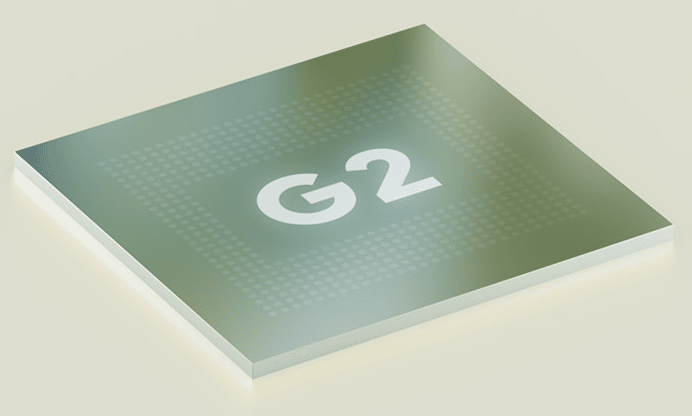
The Tensor G2 is the most recent processor created especially for Google Pixel7 and Pixel pro. The Pixel 7 Pro and Pixel 7, as well as Google’s upcoming Pixel Tablet, are all powered on the Tensor G2, the company’s most recent flagship CPU. It supports 60% quicker machine learning workloads and improved visuals. The Tensor G2’s octa-core CPU architecture consists of two high-performance cores, two medium-performance cores, and four efficiency cores.
Battery Performance
The Google Pixel 7 boasts a 4355mAh battery and 30W fast charging, but it does not have an in-box charger. The Pixel 7’s battery has a smaller capacity than the Pixel 6’s, coming in at 4,355mAh instead of 4614mAh. The Google Pixel 7 is smaller in every other way except for the battery, which takes up most of the volume. Although the Tensor G2 has higher power efficiency, the Pixel 7 still has issues. Google states that the Pixel 7 can receive a half recharge in 30 minutes and charge at a 30W pace.
The 5,000 mAh battery in the Google Pixel 7 Pro should enable it to operate for a long time. You can change the resolution to QHD+ for a sharper image but doing so will increase daily usage by around 3-5%. The Pixel 7 Pro’s battery drains faster despite being 13% bigger than the 4,355-power cell in the Pixel 7. This is probably because the faster, higher-resolution display needs more processing power. The Pixel 7 Pro doesn’t include a charger in the box, despite supporting 30W fast charging. It takes longer to fully charge than some flagship smartphones, at 1 hour and 51 minutes.
Which of the Google Pixel 7 and Google Pixel 7 Pro is better to buy?
The Google Pixel 7 Pro is well worth the extra money if you’re seeking cameras that can compete with the Galaxy S22 Ultra and iPhone 14 Pro for a lower cost. Moreover, it has a larger display and battery life, making it worth purchasing.
What sets the Google Pixel apart from other smartphones?
In addition to those important software updates, Pixel phones occasionally receive Feature Drops, which add new software features without bringing the operating system up to date. No bloatware is another benefit of obtaining these software upgrades directly from Google.
Conclusion
However, the following are all the comparative points you should consider before purchasing. Though the Google Pixel 7 vs Google Pixel 7 Pro’s camera specifications are almost similar, the pixel 7 pro has 30x super-resolution and 5x optical zoom. If the display is the primary concern, then Google Pixel 7 Pro has a 6.7-inch OLED screen, while the Pixel 7 has a 6.3-inch OLED screen. If price is the primary concern, then the Pixel 7 is cheaper. The Google Pixel 7 pro is our choice as it has more significant battery life, a larger display, and a new upgraded camera feature.


